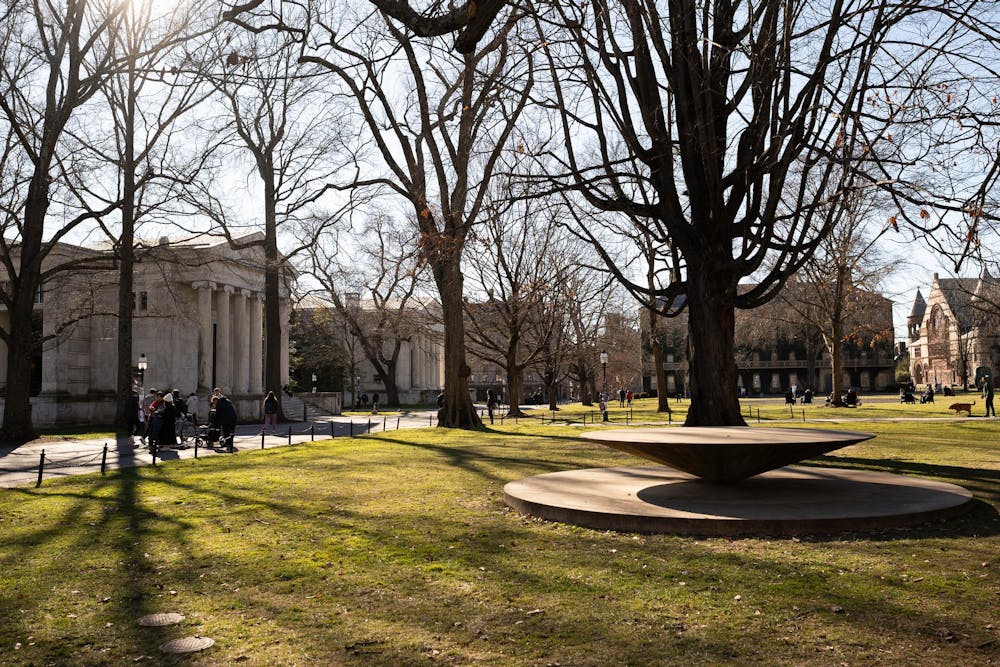Content Warning: The following article includes mention of suicide.
University Counseling services are available at 609-258-3141, and the Suicide Prevention Lifeline is available 24/7 at 988 or +1 (800) 273-TALK (8255). A Crisis Text Line is also available in the United States; text HOME to 741741. Students can contact residential college staff and the Office of Religious Life for other support and resources.
We have a mental health crisis on this campus. Only two months after the tragic death of a first-year student, we are mourning the loss of another. Princeton’s mental health problem is complex and must be addressed holistically. As others have argued recently, the University can and must do better at providing clinical care and implementing suicide prevention. But we also must reevaluate Princeton’s insidious stigmatization of struggle — and we need to reevaluate how we treat each other. We as a community can do more to promote kindness and create robust support systems for each other.
No one gets through Princeton without struggling. From our overwhelming workloads to the anxiety-inducing nature of bicker to the race for prestigious summer internships, life at Princeton is full of academic, social, and professional stressors. These conditions can be detrimental to student mental health. The Daily Princetonian’s class of 2023 senior survey reported that 78.5% of graduating seniors who responded to the survey considered seeking mental health treatment during their four years at Princeton.
If struggle is nearly ubiquitous at Princeton, why is it so stigmatized? As high-achievers, we tend to tie our self-esteem to how often and how effectively we work. This dynamic implies that struggle is derived from personal failure — so we try to make our striving look easy. That’s not healthy, and it’s not the way that things have to be.
Some have labeled this mindset internalized capitalism, the belief that we remain inadequate no matter how hard we work. Internalized capitalism is rampant on campus. It treats feelings as liabilities that inhibit productivity. But neglecting our own emotions and those of others does our whole community a disservice.
Instead of eschewing conversations about our feelings and attempting to obscure our struggles, we should cultivate the courage to openly discuss them. We should strive to normalize expressing our vulnerabilities, because in doing so, we validate those of others. Research shows that perceived stigma often discourages individuals from seeking mental health support that they desperately need. By divulging our uncomfortable, painful emotions within our own social groups, we can begin to expose the widespread nature of struggle at Princeton, and thus combat the pervasive stigma that surrounds mental health challenges on our campus.
Beyond legitimizing struggle, we can always intentionally endeavor to be kinder, including to those we don’t know. It sounds trite, but simple kindness has powerful reverberations — just reaching out to check in can make a big difference to those suffering from suicidal ideation. Not only is kindness instrumental to alleviating our mental health crisis, incorporating more mundane acts of kindness into our everyday experience could help eradicate elements of toxic individualism from our campus culture — helping demonstrate to those dealing with social isolation or ostracization that they have a community to rely upon.

As we develop a nuanced approach to the mental health crisis, it’s worth considering how we can better care for first-year students in particular and model a more balanced culture for future classes. Older students have more established friendships and support networks and may have caught onto the essential lie of internalized capitalism. But first-years may not have developed such support mechanisms and perspectives.
For first-years, Princeton’s specific difficulties are exacerbated by the universal difficulty of adjusting to college. “Elite” students are not immune from this phenomenon: One 2021 study of UCLA students revealed that nearly half of students surveyed found it difficult to acclimate to college academic standards and over 60 percent experienced difficulties developing close friendships with their peers, reflecting the drastic transition that the beginning of college brings.
We also need to further institutionalize community, both for all students, but especially for first-years who may not have found their social groups yet. This can include residential college advisors (RCAs), peer academic advisors (PAAs), and other upperclassmen in leadership roles prioritizing checking in on first-year students more consistently and frequently. We can also promote new avenues for mentorship — such as introducing a formalized, campus-wide iteration of the “big-little” programs that many clubs already have, in which first-years seeking extra support would be paired with compassionate upperclassmen.
These community obligations in no way absolve the University administration. Our leadership’s failure to vigorously and proactively confront this catastrophe is an unjustifiable disgrace, and our quest for solutions is admirable. In order to mitigate our mental health crisis, the University must reform gratuitous academic expectations and implement a comprehensive plan for suicide prevention, like the one Eleanor Clemans-Cope, head Opinion editor for the ‘Prince,’ recently outlined.

But we can all help facilitate the creation of a campus culture in which struggle is not considered shameful and unwavering kindness abounds. The administration must do better — and so must the community.
Frances Brogan is an assistant Opinion editor and prospective Politics major from Lancaster, Pennsylvania. She can be reached at frances.brogan[at]princeton.edu.








